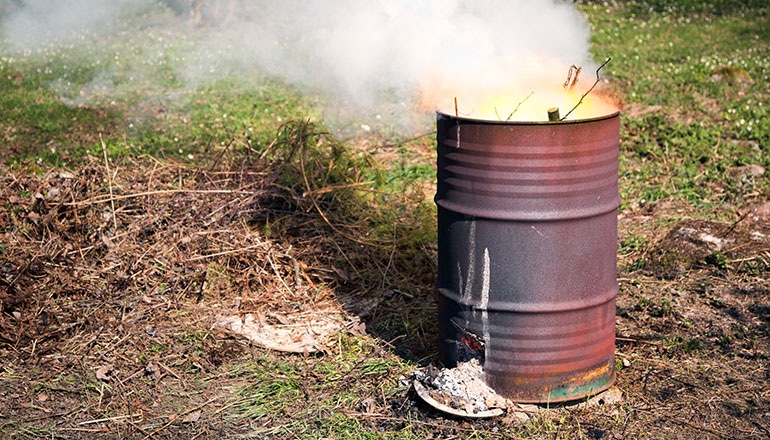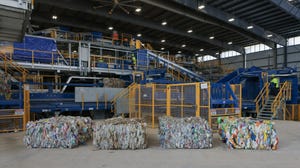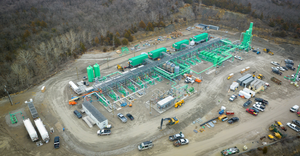Open Burning of Trash: A Hidden Toxin (Part Two)
Part two of a two-part series this week looks at the problems caused by backyard trash burning.

In a two-part series this week, Rob Arner, consultant with Re-gain Enterprise, will examine the problems associated with backyard trash burning and what municipalities and government leaders are doing to address the problems. Read part one here.
My Virginia Experience
My expertise in exploring burning waste was when I helped build a used oil recycling facility in the middle of Alexandria. Unfortunately, used oil may contain numerous other automotive fluids that when incinerated contaminate the environment. Roughly, 110 million gallons of used oil is burned as fuel in 75,000 small used oil space heaters. Since 1999, Virginia has given a 50 percent tax credit for up to $4,000 for the purchase of these heaters.
Serious environmental and energy questions have been raised concerning the combustion of used motor oils in space heaters. A U.S. Department of Energy study cites that small burners do not provide the levels of pollution reduction found in large-scale industrial combustion processes since asphalt/cement plants and steel mills have flue gas treatment technologies.
Years ago, I was reading a brochure written by my county fire department. I was amazed how it allowed for the burning of household trash. I researched all manners of how best to proceed. After working with my fire marshal in Shenandoah County for more than nine months in the hope to develop a brochure informing citizens what is best to do, he directed me to contact Virginia environmental regulators.
Back in 2004, I approached the Department of Environmental Quality (DEQ) and the Virginia Chapter of the Solid Waste Association of North America. I requested to make Virginians aware of the dangers of burning trash. For example, do not burn magazines or plastic in their wood stoves. I also requested the state develop regulations for backyard or barrel burning to include in the Virginia Solid Waste Management Regulations. Neither organization was interested in addressing this issue then.
In 2016, Virginia DEQ updated its burning regulations; however, it still allows the following:
Open burning is permitted for the on-site destruction of household waste by homeowners or tenants, provided that no regularly scheduled collection service for such refuse is available at the adjacent street or public road.
Virginian solid waste and air regulations make accommodations for the open burning of certain household wastes.
What to Burn and What Not to Burn
Plain black ink newspaper and uncoated papers, such as printer paper, are safe to burn. However, colored paper, wrapping paper, newspaper inserts and magazines are not safe to burn. These items contain metals that can give off toxic fumes when burned. Cardboard can release toxic chemicals when burned, especially if it has been printed with a logo, plastic tapes and other coatings. Any cardboard with wax or colored print should be kept out of the fire.
Plastics are also unsafe. Any type of household plastic, whether it’s bubble wrap or a plastic cup, should not be burned in a fireplace. Plastics release toxic chemicals, including hydrochloric acid, sulfur dioxide, dioxins and heavy metals, that are dangerous for your health and bad for the environment. These emissions are known to cause respiratory ailments and stress human immune systems, and they’re potentially carcinogenic.
Other items not to burn: tires, glues, treated lumber and driftwood (salt is an issue), rubber, paints, metals, electronics, painted woods, petroleum products and other forms of trash.
Conclusion
We all share the same air. It would be wise for the U.S. to establish a national and global public awareness campaign to lessen open burning. With the greater population and the planet getting hotter, we must lessen air pollution. Just look at India and China to see how their air emissions are causing a health and environmental crisis. Toxic, uncontrolled incineration of waste threatens our health, economy and our greater wellbeing. Open burning of waste is a difficult thing to quantify, however, and we must motivate ourselves to prevent this from happening if we wish to breathe easier in the future.
Additional Background
https://www.scientificamerican.com/article/burning-trash-bad-for-humans-and-global-warming/
http://www.cnn.com/2009/US/03/17/burn.pits/
http://www.mpnnow.com/news/x81489877/The-burning-debate
https://archive.epa.gov/epawaste/nonhaz/municipal/web/html/health.html
https://www.cnn.com/2019/03/02/asia/south-korea-trash-ships-intl/index.html
https://www.nationalgeographic.com/environment/2019/03/should-we-burn-plastic-waste/
Various States Ban Open Burning
https://www.pca.state.mn.us/waste/laws-prohibiting-backyard-burning-garbage
https://deq.nc.gov/about/divisions/air-quality/air-quality-compliance/open-burning
https://dep.wv.gov/DAQ/CANDE/OPENBURNINGBROCHURE/Pages/default.aspx
For 40 years, Rob Arner has worked on water quality improvement programs and resource management issues. He has experience in implementing all types of conservation programs in the Washington, D.C., area and in other parts of the U.S. and abroad. Also, he has provided technology transfer and technical assistance in all aspects of pollution prevention.
About the Author(s)
You May Also Like


